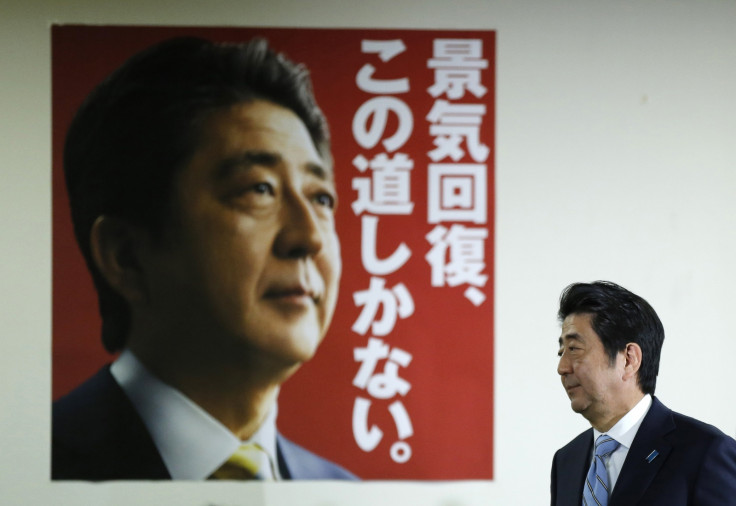Japan snap election: Why Shinzo Abe sought a new mandate for Abenomics

After securing a convincing victory in the snap election he called just weeks beforehand, Japanese Prime Minister Shinzo Abe told reporters the message from the electorate was clear: move forward with Abenomics.
Abe's ruling coalition of his own Liberal Democratic Party and minor partner New Komeito Party secured two-thirds of the seats in the National Diet's lower chamber, the House of Representatives.
The turnout was 53.3%, a record low for Japanese elections. But that does not distil the mandate Abe was seeking and has just won. So why did he call a sudden election just two years after taking power?
Abenomics
The Japanese economy, the world's third largest, has stagnated for the best part of 25 years after the bursting of an asset price bubble in the early 1990s, mostly in the form of bloated property and stock values.
Successive governments have tried and failed to bring Japan back to solid economic growth and stable price inflation.
Since his 2012 election, Abe has pursued a three-pronged effort to lift the Japanese economy out of the mire. These "Three Arrows" have become collectively known as Abenomics, a blend of Keynesianism and Thatcherism.
The first arrow is devaluing the Japanese Yen to stoke inflation and boost the country's exports. This has been done by the Japanese central bank effectively printing money to buy its own government's bonds, also known as quantitative easing. It's worth around 80tn yen (£430bn, $674bn) a year.
Arrow number two is an increase in fiscal stimulus. In layman's terms, more government spending to lift the economy while it's slumped.
And the third arrow is a set of reforms to liberalise parts of the Japanese economy, such as rolling back labour market regulation to make it easier for firms to hire and fire workers, and breaking down monopolistic markets such as agriculture to make them more competitive.
Some have said Abenomics has already failed but, just two years in and with further stimulus and reforms to make, it is too early to reach a conclusion just yet.
Sales tax
Yoshihiko Noda of the Democratic Party of Japan, Abe's predecessor, had brought in a programme of sales tax rises ending in 2015 as part of a plan to reduce Japanese public debt. It has hit 227.2% of GDP as social spending rises sharply off the back of the country's ageing population.
Under the Noda plan, Japan's sales tax would rise from 5% to 8% in April 2014 and then again to 10% in 2015. Abe backed the controversial tax rises. But the first in April triggered a sudden recession in Japan as consumers reined in their spending.
Japanese GDP contracted by 1.9% in the second quarter of 2014, beginning in April, and by a further 0.5% in the third. So Abe decided it was time to act.
He wanted to delay the second planned sales tax rise in 2015 for 18 months. But he wanted to seek a mandate from Japanese voters to do it, as well as for the rest of his Abenomics programme – hence the snap election.
Alicia Higson, senior economist at the Centre for Economics and Business Research, said Abe's "reconfirmation will help him to push through further market reforms and provide more quantitative stimulus".
But Simon Smith, chief economist at FXPro, said the low turnout "says a lot about voter apathy towards the further reforms Abe was supposedly trying to get a fresh mandate on".
© Copyright IBTimes 2025. All rights reserved.






















